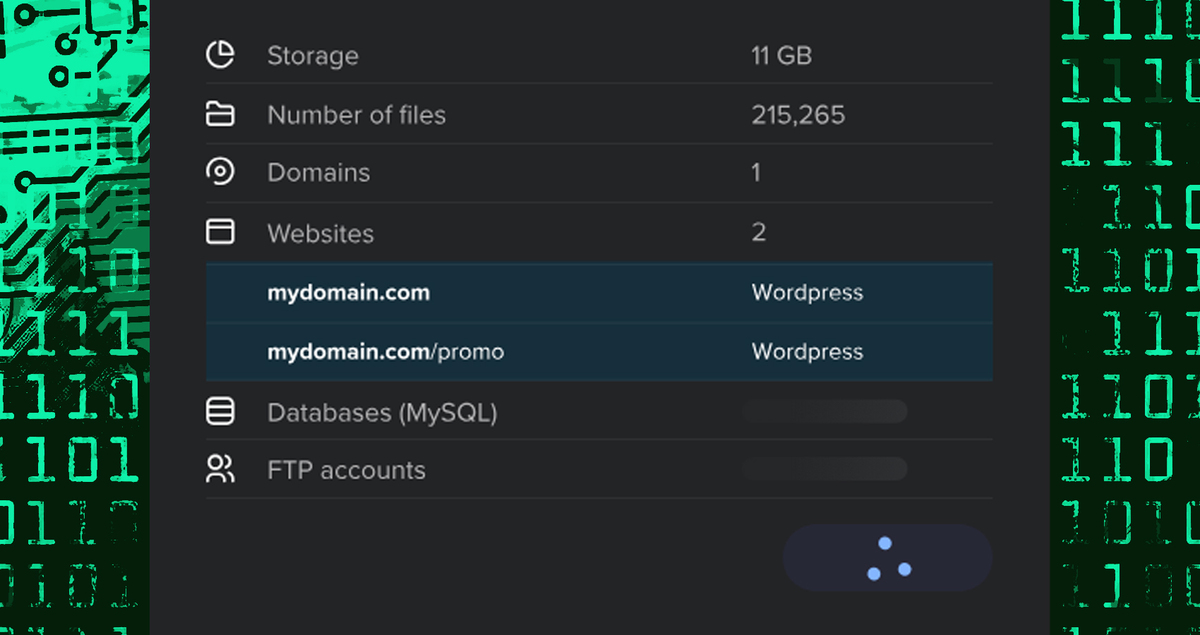
Is Expensive Always Better? Debunking Myths Around Web Hosting Price & Performance
Uncover the truth behind web hosting.
Let’s get one thing straight: when it comes to web hosting, price tags don’t always tell the full story. There’s this lingering myth that the more you pay, the better your site will perform. Like luxury skincare or premium bottled water. But websites aren’t face creams, and hosting isn’t magic. It’s infrastructure. And infrastructure has nuance.
So, what’s the real deal behind web hosting price and performance? Is it truly a "you get what you pay for" scenario—or is the industry just really good at marketing its top-shelf plans?
The Psychology of Pricing in Tech

We’ve all been there. Browsing hosting options, eyes darting between the $3.95 plan and the $25.99 "Pro Plus Ultra Speed" whatever. Our brains? Wired to associate cost with value. And companies know it. They lean into that instinct, stacking on buzzwords like "turbo boost" or "military-grade security." Sounds serious, right?
But does that extra cash always mean better uptime? Or faster load speeds? Spoiler: not necessarily.
What Actually Impacts Performance?
Here’s where we need to separate the marketing from the mechanics.
1. Server Type and Configuration
Shared hosting, VPS, dedicated servers, cloud hosting—these matter more than the brand or package name. A $10 cloud-based plan might outperform a $30 shared hosting plan simply because of the underlying architecture.
Shared hosting means you’re on the same server as hundreds (sometimes thousands) of other websites. Think of it like an apartment building with thin walls. If your neighbor starts throwing parties every night (i.e., their site suddenly goes viral), your site slows down too.
2. Data Center Location
If your audience is mostly in Germany, but your hosting server is in Arizona? Yeah, your site's gonna feel that. Proximity still matters, despite how fast the internet is. Some budget hosts let you choose your data center—others don’t. That’s not a price thing. That’s a flexibility thing.
3. Resource Allocation
A fancy plan with "unlimited" bandwidth doesn’t mean unlimited performance. It often means "unmetered," which just means they won’t bill you per gigabyte—but there’s still throttling if you use too much. Reading the fine print matters more than the sticker price.
4. Caching and CDN Support
Some hosts bake in smart caching tools or integrate easily with CDNs like Cloudflare. Others don’t bother. Again—sometimes the cheap plans offer these; sometimes the expensive ones don’t.
The Real Cost of Cheap Hosting

Let’s not romanticize budget hosting, though. Dirt-cheap hosting can be... well, dirty. Oversold servers. No support. No scalability. Sketchy uptime. It’s like buying sushi from a gas station. Doable? Sure. Recommended? You already know.
But price doesn’t guarantee quality either. There are plenty of mid-tier and even high-end hosts that cut corners. So it’s less about how much you pay, and more about what you get for what you pay.
Red Flags in Premium Hosting Plans
High price, low value—yes, it’s a thing.
1. Locked-in Contracts
You ever try canceling a premium hosting plan and realize there’s a "no refund" clause after 30 days? Or that the "introductory price" jumps by 300% after a year? It’s... not great. Always read the renewal terms.
2. Fancy Terms, Vague Promises
"Optimized for WordPress!" Okay... but how? If a host can’t explain what that means without sounding like a sales robot, be skeptical. Are they offering object caching, better PHP workers, isolated resources? Or just slapping WordPress on a landing page?
3. Support That’s There... But Not Helpful
We’ve seen premium hosts offer 24/7 support that’s basically a chatbot and an FAQ. Meanwhile, some smaller, cheaper hosts have live techs who’ll troubleshoot your issue within 15 minutes. Again—it ain’t about price. It’s about priorities.
When Paying More Actually Does Make Sense

Alright, not everything expensive is a scam. Sometimes that $30/mo plan is worth it. Here’s when:
- You’re running an eCommerce store during Black Friday. You need guaranteed uptime, DDoS protection, and real-time scaling.
- Your site serves 100k+ monthly visitors and media-heavy content. You need RAM. Lots of it.
- You’re managing client sites and want dedicated environments with quick rollback options.
In these cases, premium hosting isn’t a luxury—it’s insurance. But if you’re just running a blog or a small portfolio site? You probably don’t need all the bells and whistles.
Case Studies: Real Sites, Real Lessons

Let’s get specific. Here are three real-world-ish scenarios (names changed to protect the guilty and the broke):
Example 1: The Overbuyer
Marina runs a wellness blog. Think: smoothie recipes and yoga poses. Her traffic hovers around 1,200 visits a month. She buys a $29.99 plan because a sales rep said it’s "best for WordPress." Turns out, her CPU usage never even crossed 10%. She was paying for capacity she’d never touch.
Example 2: The Underdog
Liam launches a drop-shipping store and picks a $3.99/month host. On launch day, traffic spikes—and the site crashes. Twice. Turns out, he had zero caching and the host was throttling his bandwidth. His "cheap" choice cost him sales.
Example 3: The Smart Spender
Ava runs a tech newsletter with 10k subs. She uses a $12/month VPS that lets her scale, monitor resource use, and even install her own firewall tools. Not flashy. Just functional. And fast.
What To Look For (Instead of Just Price)
- Uptime guarantees (99.9% isn’t 100%—do the math over a year)
- Transparent resource allocation
- Honest support (try contacting them before you buy—see how it goes)
- Room to grow (easy upgrade paths, not just huge jumps in cost)
- Community reputation (Reddit and indie forums tell a lot more than curated reviews)
So... Is Expensive Always Better?
Nah. It’s not about expensive. It’s about appropriate.
If you’re choosing a host, start with your needs. Your traffic. Your content type. Your risk tolerance. Then find a plan that meets those—not one that dazzles you with shiny pricing tiers and fake urgency like "LIMITED TIME OFFER!!" flashing in red.
Bottom line? Price is a tool, not a truth. Hosting isn’t a status symbol. It’s a utility. Choose it like you’d choose plumbing—quiet, reliable, and only noticeable when it breaks.
And hey, if you find a solid plan at a good rate? Stick with it. Test it. Monitor it. Reassess yearly. You’re the one in control—not the marketers with their glittery dashboards and scary charts.
Hosting should empower your site. Not drain your wallet for the illusion of "better."
That’s the myth. Now you know better.











